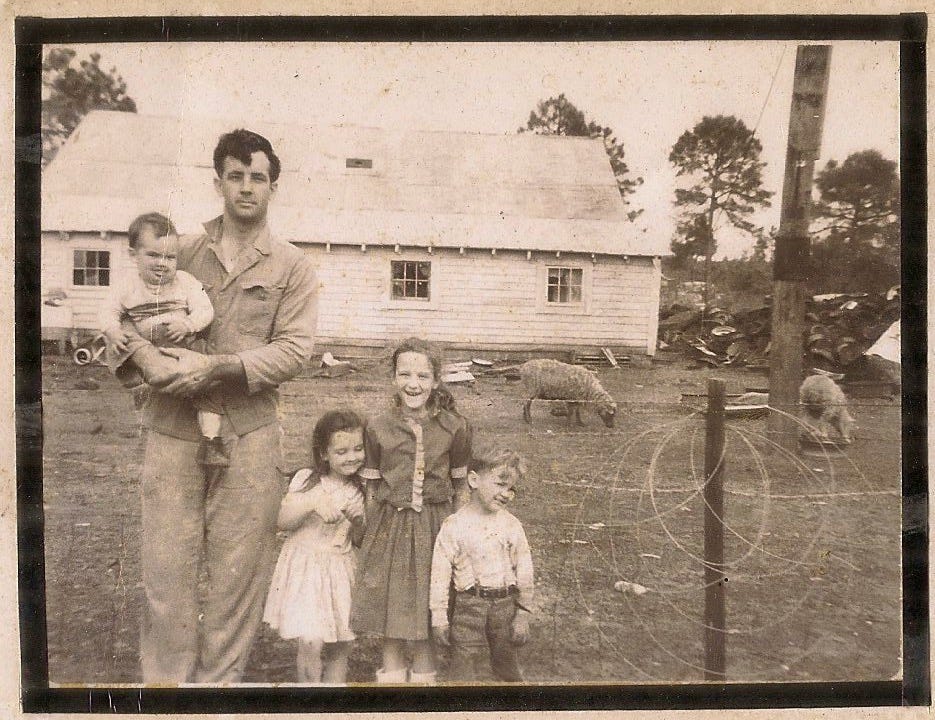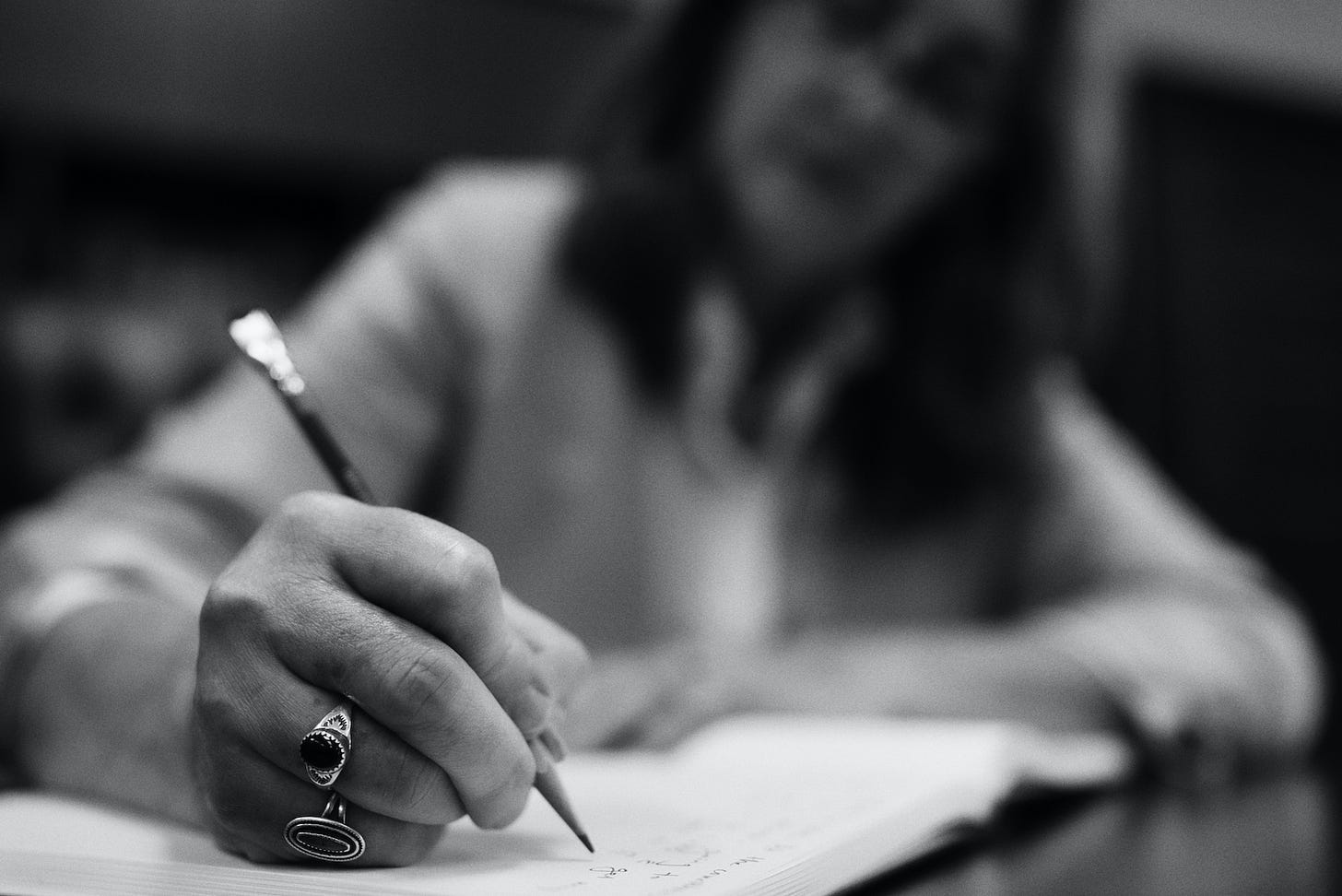The one element you need for writing memoir is memories.
Because I’m prepping for the memoir course I’m teaching this summer, I’m thinking a lot about memories.
The other day as I hung laundry I tasked myself with remembering my earliest memory. I never did.
I scanned early childhood, as I have done a hundred times.
My father’s homemade boat sank in the Altamaha River when I was two months old. I was told the story enough times that I feel as if I remember floating to the riverbank on a tiny life vest, but I don’t.
When I was 13 months old, my brother was born. Then 21 months later my youngest brother came along. During that time, when I was eating grits, sitting in my highchair, I learned to test them first with my finger, to see if they were cool enough to eat. I can imagine doing that, but again, I doubt that I truly remember it.
My father walked out a window in my house when I was six. He had become bipolar and was in a manic episode. I wrote about the incident vividly in my first book, a memoir—Ecology of a Cracker Childhood. But do I remember it? I have my doubts.
The memories I do have are snippets, pieces of dreams rather than entire story-dreams. I remember a boy chasing me at recess in first grade, the terror I felt, not knowing what would happen if he caught me, and I remember taking refuge near my teacher. I remember my grandfather bringing us grandkids bubblegum shaped and wrapped like cigars. I remember my second-grade teacher reading aloud to my class.
The question becomes, then, if your memory is poor or if trauma blurs your memories, what do memoirists do? How to remember? They trick memory.
How to Hoodwink Memory
Getting into flow state helps.
Flow-writing (doing freewrites, or timed units of writing practice, starting with a prompt) can drop you into the subconscious where a memory might bubble up.
A common practice is to study memory aids that document your past—photographs, old journals, school notebooks.
See if you can find newspaper clippings that bring back memories or details.
Objects from the past sometimes elicit memories.
Ask family and friends what they remember. Take notes.
Visit places from your past, if they still exist and can be visited.
Memory Hoarding
Strangely, poet Cyn Kitchen was thinking about memory this week in her Substack, The Kitchen Cynk. The post is “Memory Hoarder: the downside of perfect recall.” She is writing about the tendency of humans to remember every bad thing that happened and how torturous it can be to write such a scene from childhood. Cyn wrote:
I have a bad habit of replaying traumas, regrets, frustrations, missed opportunities, disappointments, insults, lost love, failures—. I fight a near-constant battle against letting these things define me.
Is Writing Healing?
I remember, when I was writing Ecology, that I felt this way, that although the writing of a painful scene was excruciating, I would feel better when it was on the page. That’s what we believe, that writing is a healing process.
Sometimes it is. Writing down what happened, to be sure,
can help us look rationally at the past
can memorialize, or put to rest, the past
can help us categorize an event
can help us move a bad memory from a primal to a more cognitive part of the brain
But often as not, the pain does not magically disappear. It never disappears.
Let me propose a radical idea, that we don’t write memoir to heal ourselves or to put bad memories to rest, but to help the reader. I can’t think of a single instance where reading someone else’s story didn’t benefit me.
The Good Ones
So what about good memories? They are just that, good. They can be used for the common good. They help us remember that most people are good and try to do good things, and that having a good life is a good thing, a thing most of us are aiming for.
I Invite You to Comment
I’d love to hear your thoughts on any of this, especially other ideas you have for recalling things or for writing about things you don’t actually remember.
Memoir Course Starts June 4 Online Using Zoom
Having said all this, let me invite you to register for my memoir class this summer, “Write Your Own Story.” It happens 1 hour per week, on Wednesdays from 11-noon Eastern Time, with additional coworking sessions. We start June 4 and end 12 sessions later. We do this live via Zoom—Zoom being an online meeting space. Sessions are recorded so you can access them later, if you can’t be there in person or if you simply want to review. The button below takes you to my website, where I’ve placed a lot of information about what we’ll be doing.
Tuition is $300, unless you’re a paying subscriber here, in which case there’s a discount. I can send you the code.
Take your time deciding. You still have two weeks before registration closes.






Thank you for this post, Janisse. I'm interested in discerning the difference between actual memories and imagined ones. What's really mine? What's a story my Mama told me?
Memories are like dreams - if I can be alert and grab onto them as they flit by, I can dive in. But if I am too distracted, they fly away. Smells are powerful memory aids, too. They can take me right back, like magic.
I had one or two positive memories from childhood, and several traumatic ones. I just figured that's all there was. Until I wrote an angry letter to my mom, giving voice to an incident that I'd been having a two-year-long cPTSD flare up about. Afterwards, all the bad memories faded to the background and all I could remember were lots of good memories, ones I didn't know I still had. That lasted about four months. It was like a reverse flare up.